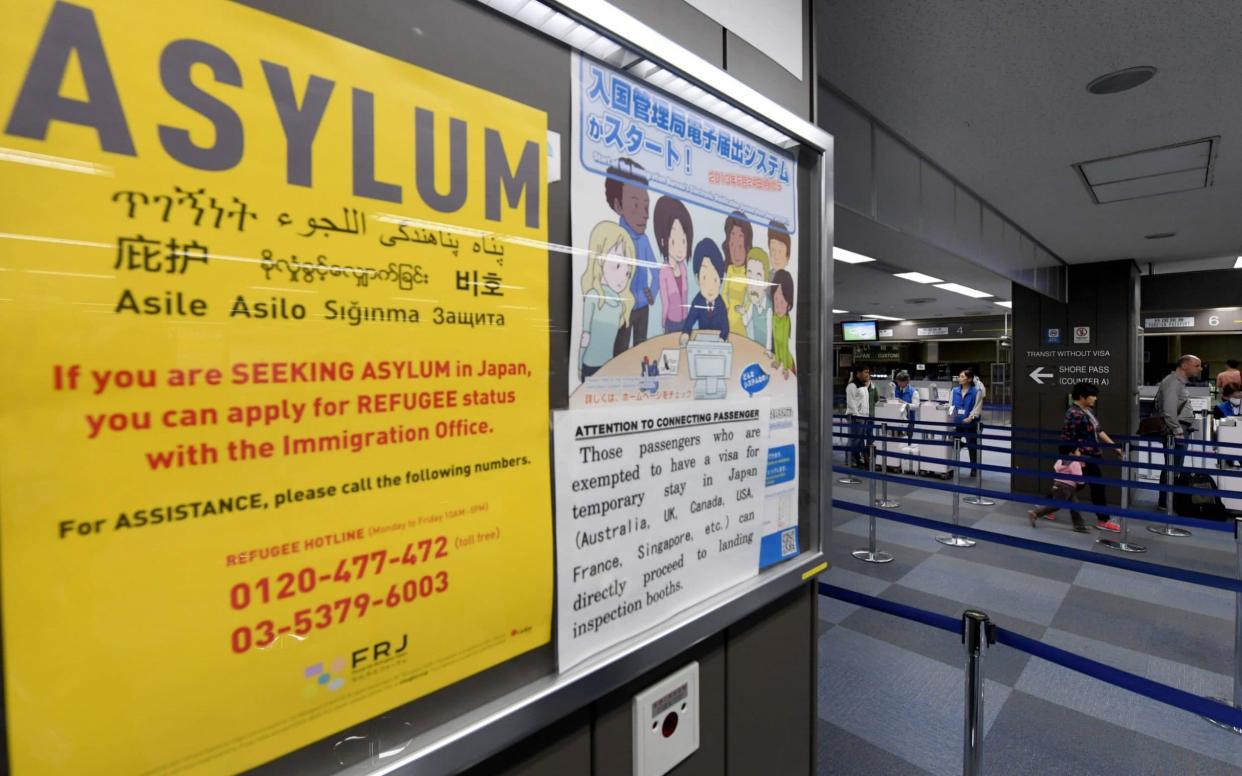Deported mother tells of moment five-year-old son was taken from her by Japanese officials - 'I still cannot forget his crying voice'

Japanese immigration officials have been accused of forcibly removing a crying five-year-old boy from the lap of his Vietnamese mother before she was deported from the country.
The mother was among 46 Vietnamese deported by immigration officials in February for staying illegally in Japan, with members of 12 families reportedly separated as a result.
Nguyen Thi Loan Phuong, 46, told Kyodo News agency how her Japanese-born son, aged five, was tearfully removed from her lap in a room at Tokyo Immigration Bureau a week before she was put out on a chartered plane to Hanoi.
Speaking in a telephone interview, she said: “My son was crying. I still cannot forget his crying voice.”
Six months on, her son remains in Japan where he is being looked after by her Vietnamese refugee husband Hoang Van Hiep, 52, who is juggling childcare with night shifts at a noodle-making factory in Gunma Prefecture.
Ms Phuong, who was deported from Japan on one previous occasion, reportedly returned to the country eight years ago using her sister’s passport, before marrying her husband.
Mr Hiep told local media that returning to Vietnam to be with his wife was impossible due to his refugee status while their son only speaks Japanese.
“My wife certainly violated the immigration law, but she regrets it,” he added. “All I want is just to live with my wife and son.”
Japan is home to famously strict immigration laws, despite its rapidly ageing population and low birth rate fuelling growing concerns about the nation’s shrinking workforce.
The recent situation surrounding Vietnamese families has led to accusations of parallels with immigration policies in the United States, where the separation of thousands of children from parents recently led to global condemnation.
Motoko Yamagishi, secretary-general of the Solidarity Network with Migrants Japan, told the Telegraph that the departure of the Vietnamese in February was the seventh occasion the Japanese government had chartered a plane for the purpose of a mass deportation since 2013.
Highlighting how many were forced to leave behind families and established lives in Japan, she added: “We strongly protest against mass deportation using a chartered plane. We believe that the human rights of everyone living in Japan should be equally respected in this society.”

